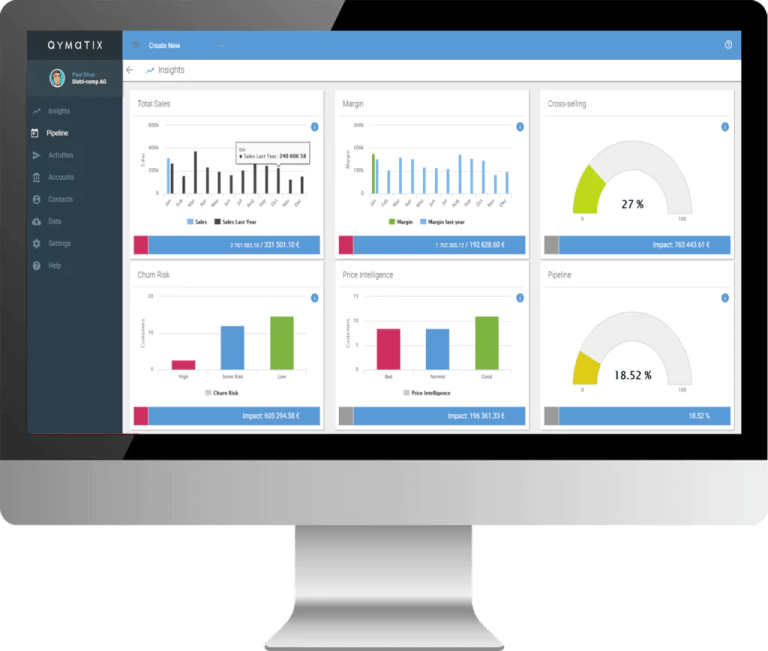How To Accelerate B2B Sales Growth With One Proven Strategy
Revenue stagnation is a nightmare most managers are scared to dream. If a market is growing in line with the economy and income stagnates, then market share is approximately contracting, and a company is becoming irrelevant. No manager wants that.
Deep Learning vs Machine Learning
Even before the advent of deep learning, we’ve been creating smarter processors that can help us do complex tasks like IBM Watson. But now that machine learning has been divided into subsets, many of these terms get confused or conflated.…
How to Define and Increase the Lifetime Value of your B2B Customers
Customer Lifetime Value Definition for B2B. Sales and marketing B2B experts define customer lifetime value (CLV or often CLTV), lifetime value (LTV) or lifetime customer value (LCV) as the net profit attributed to the entire customer…
How Artificial Intelligence and Machine Learning can Help in B2B Sales
Expand your expertise on the basics of artificial intelligence (AI) and machine learning (ML) in B2B sales. You want to tap your potential in B2B sales and have got a taste of AI through applications like ChatGPT? Various applications of…
Retain Customers with Artificial Intelligence – Churn Prediction
Reduce customer churn and attrition with Qymatix Predictive Sales Software.
Earn Millions of Euros with Dynamic Pricing Analytics
Automate personalisation and pricing processes in B2B using Qymatix B2B Pricing Analytics Software.
Human and/or machine – Why we are afraid of AI: The ELIZA effect.
Does your robot vacuum cleaner have a name? Have you ever thought that Alexa has a sense of humour or Siri is having a bad day? And if Google Maps gets it wrong once and directs you right into a traffic jam, is that forgivable because it's a…
The Art of Artificial Intelligence in B2B Sales
AI in B2B sales: How exactly can B2B companies use Artificial Intelligence to support their sales? The applications of artificial intelligence (AI) are very diverse. It is not without reason that big players such as Apple, Facebook, Google or…
Level Up! How AI Upgrades B2B Sales Processes.
Perhaps you know the difference between effectiveness and efficiency. But do you take it into account in your daily work in sales? In this article, I show you how to upgrade your sales processes from effective to efficient to avoid "game…
Five Mistakes in the Implementation of New Technologies (AI) in Sales
Introducing new technologies for B2B sales is not always easy. In this article, you will learn which mistakes you should avoid. Joachim Meyn has many years of experience in B2B sales and has managed many projects in the area of CRM…









